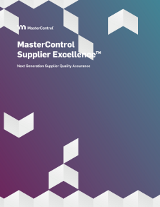
GxP Lifeline
Strategic Supplier Quality Management: Navigating Risks, Ensuring Quality in Life Sciences

In the dynamic landscape of pharmaceuticals and biotech, where product quality and regulatory compliance are non-negotiable, effective supplier management emerges as a linchpin for success. This blog post delves into the critical realm of supplier relationships, exploring the nuanced strategies and key components necessary to ensure a seamless and reliable supply chain. By adopting a holistic approach encompassing supplier risk management, qualification processes, audits, quality agreements, onboarding efficiency, and data-driven oversight, companies can fortify their supply chains against potential disruptions while fostering a culture of quality and reliability.
Holistic Supplier Management Approach
To truly grasp the significance of effective supplier management, it is essential to adopt a holistic approach that considers every facet of the supplier relationship. At the core of this strategy lies supplier risk management, a proactive endeavor aimed at identifying and mitigating potential issues before they escalate.
Robust qualification processes serve as the initial gatekeepers for supplier quality management, ensuring that suppliers meet stringent criteria related to product quality, compliance, and reliability. According to ICH Q10 Part 2.7 and the U.S. Food and Drug Administration’s (FDA) Guidance for Industry - Q10 Pharmaceutical Quality System paragraph III.G, “The pharmaceutical company is ultimately responsible to ensure processes are in place to assure the control of outsourced activities and quality of purchased materials.” Similar language can be found in 21 CFR Part 820.50 for medical devices.
As part of the holistic approach to supplier quality management and the above requirements, the implementation of rigorous supplier audits becomes pivotal. These audits serve not only as compliance checks but also as opportunities to foster collaboration and continuous improvement. By engaging in a transparent dialogue with suppliers through audits, companies can identify areas for enhancement, share best practices, and align objectives. Management of audit events and audit records within an electronic quality management system (eQMS) allows companies to capture key statistics which can be aligned with the supplier record and ultimately incorporated into required management reviews.
Proactive Risk Mitigation
The second major takeaway revolves around the theme of proactive risk mitigation in the ever-evolving landscape of industries like pharmaceuticals and biotech, where anticipating and addressing risks before they materialize is paramount. This begins with assessing risks associated with the product or service the supplier is filling; see also standards set forth in ISO 14971:2019 specifically for medical devices. In addition to the aforementioned robust qualification processes, the establishment of clear and comprehensive supplier quality agreements should also be considered.
Quality agreements act as the contractual backbone of the supplier relationship, delineating responsibilities, quality standards, and compliance expectations. The FDA provides guidance on this topic specific for drugs in the 2016 document titled “Contract Manufacturing Arrangement for Drugs: Quality Agreements.” When potential issues are identified during audits or internal assessments, these agreements provide a structured framework for resolution. This proactive approach not only ensures adherence to quality standards but also fosters a collaborative environment, where both parties are aligned in their commitment to quality and compliance.
Data-Driven Supplier Oversight
In the digital age, where data powers decision-making, maintaining an up-to-date supplier database emerges as a critical component of effective supplier management. This represents the third major takeaway: data-driven supplier oversight. A well-maintained database serves as the nerve center for streamlined communication, oversight, and decision-making. Such databases have been and are becoming more integrated into electronic quality management systems and allow companies to draw on tools from artificial intelligence and machine learning (AI/ML) to analyze data.
An efficient supplier quality management database is often tightly integrated into the eQMS and allows companies to access real-time information about supplier performance, compliance status, and historical data. This transparency is invaluable, especially in times of crisis or when rapid decision-making is required. Additionally, the database facilitates the monitoring of key performance indicators (KPIs), enabling companies to gauge supplier performance against predefined benchmarks and, when necessary, initiate and document supplier/provider quality events and corrective actions (i.e., supplier corrective action requests (SCARs) or provider corrective action requests (PCARs)).
Cultivating a Culture of Quality and Reliability
By addressing these aspects – adopting a holistic approach, engaging in proactive risk mitigation, and implementing data-driven oversight – companies cultivate a culture of quality and reliability throughout their supply chains. This culture extends beyond contractual obligations and regulatory requirements; it becomes ingrained in the organizational ethos. A holistic approach to supplier quality management acknowledges that suppliers are not just transactional entities; they are strategic partners integral to the success of the entire operation. This mindset shift fosters collaboration, innovation, and shared accountability for product quality and compliance.
Proactive risk mitigation, as facilitated by robust qualification processes, clear quality agreements, and collaborative audits, positions companies to navigate uncertainties with resilience. Rather than reacting to issues as they arise, organizations are equipped to anticipate, prevent, and swiftly address potential challenges.
Data-driven supplier management and oversight ensures that decisions are informed by real-time, accurate information. This not only enhances the efficiency of day-to-day operations but also empowers companies to make strategic decisions that positively impact the overall supply chain.
Conclusion
The effective management of supplier relationships is not just a box to check for regulatory compliance; it's a strategic imperative for success in industries where product quality is non-negotiable. A holistic approach to supplier quality management, proactive risk mitigation, and data-driven oversight collectively contribute to the resilience and reliability of the supply chain. Companies that embrace these principles not only meet regulatory standards but also foster a culture where quality is not just a metric but a shared commitment that permeates every aspect of the business. In doing so, they position themselves not just as suppliers or manufacturers but as architects of a robust and dependable ecosystem.

